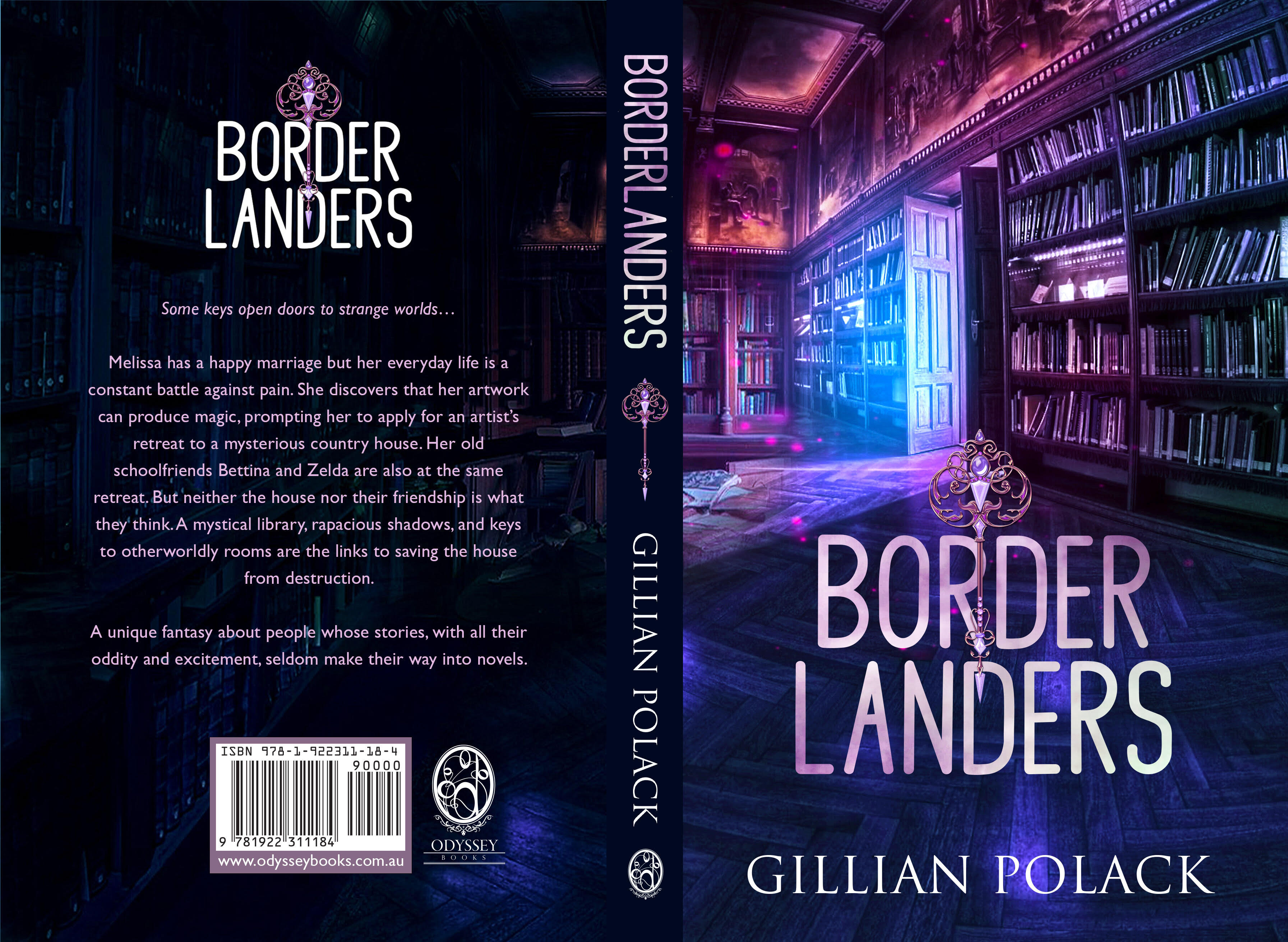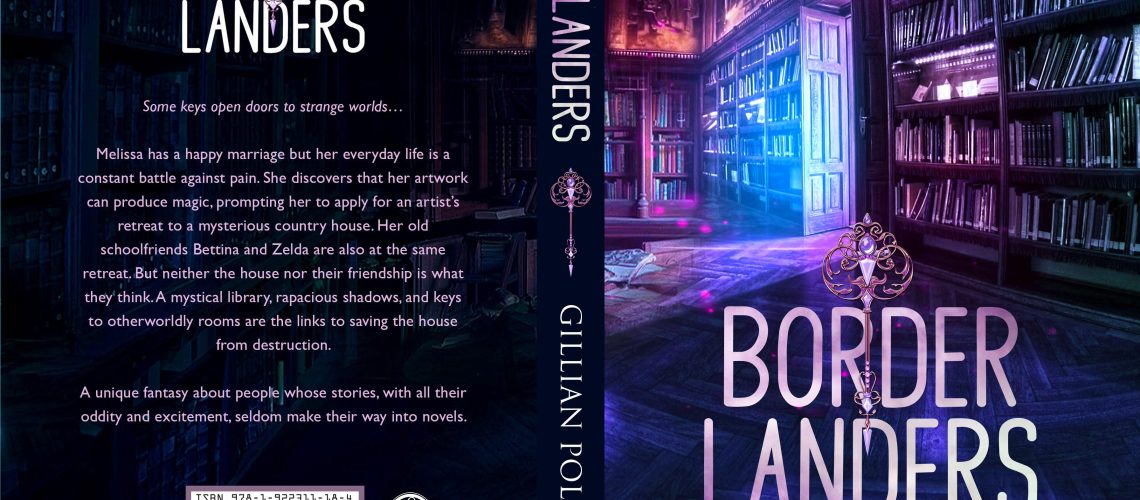I have two new novels out, both having to emerge with the lack of fanfare that we’re accustomed to in 2020. They were written a decade apart. One is published in Australia and the other in New Zealand. One is set in a world far in time and space where the government has brought back the eighteenth century. The other is set last year, in rural Australia. You can find more about both of them here.
They have several things in common. The most important is that I did not write them alone. I am active in fandom and my fannish habits peeped into my work and changed it.
Poison and Light is part of a shared universe. The original concept came when my historian self whispered to my writing self, “I have an idea.” However, an ezine and an anthology containing much work by other writers were released long, long before my version of things saw light of day. As a result the New Ceres universe has two quite different paths, but that’s another story.

Borderlanders was the result of me being far too clever on Twitter and Facebook. Let me tell you about Borderlanders first.
The novel contains one of my dream houses and a library with books I want to read and I have a hundred keys for its magic doors, but can’t give them to anyone because there are no functions to celebrate the book because of the pandemic. A hundred keys… (I have forty fans for Poison and Light and because it’s about time someone laughed at my joke that I collect fans – these things will find homes, one day.)
The other academic side of me, the one that analyses narratives and who is doing a third PhD because not only is it a fun thing to do, but my narrative-analysing self gets to work with two seriously cool scholars, was thinking about why we do what we do in story.
I’d worked out how it to write a novel where the chief protagonist had disabilities but was not a victim, nor cured, nor killed, nor had their role taken over by someone else. I was so proud of my thought that I tweeted it. I then copied my tweet to Facebook because it was such a clever thought. It was just a thought. I never intended to write it as a novel.
That tweet had many responses and they all said, “Write this novel.” I am maybe not so clever.
I explained that, though I am myself somewhat disabled (my disabilities are of the invisible kind and I was only just admitting to them in public) my own experiences weren’t enough to write the novel. Thirty people gifted me with life experience and chats. Within a few weeks I had all the material I needed to create my protagonist.
I had just enough money to get through that summer, for my patrons said, “We want this novel, too.” Some of them became my beta readers, and all of them supported me. To make sure I got the message, several of them increased their monthly support.
I had intended to earn money over the hot season and maybe return to the work I’d put on hold when my life went seriously awry in 2015. Instead, I wrote a brand-new novel, set in a town known mainly for its meat pies and a giant potato. The protagonist is disabled. She does not die, is not healed, and does her own thing. She’s not always treated well, but she fights against being a victim. She is in pain almost all the time and that pain is not described once at the beginning and then forgotten.
I’m still sitting back in wonderment. Borderlanders still has the support of every single one of those who wanted me to do it. Some of them have read it already.
I was given responsibility for the stories of so many people – I want my novel to celebrate this. The novel drew me in, but it was my readers who decided I would write it. It’s not release month, it’s the month judgement begins.
Poison and Light was a different experience. One night I dreamed of a world where, on a far planet, someone missed Sydney. To everyone with her, Earth was a metaphor and besides, it was gone.
I shared my dream with Alisa Krasnostein and we began what became the shared universe of New Ceres. Alisa, Cary Lenehan and others worked on the world with me. Matthew Farrer and Aliette de Bodard and Kaaron Warren and others wrote in this world. Two groups of my students built towns on New Ceres. It was, for two adult education courses at the Australian National University, the place to go to learn how to build towns.
I did a lot of the world building myself, and still have all my notes.
When the world itself was shared under Creative Commons, it made me very happy. That meant that everyone who had played in the world could use it, if they wanted. I had a novel to write, however, and New Ceres has two paths, mine and the one you can read in New Ceres Nights. This is why I have no story in New Ceres Nights.
It’s also why New Ceres Nights is very different to Poison and Light. My inner vision of the world was an intellectual experiment, right from the first moment I thought about it. Only those writers who talked to me directly knew this. Of the New Ceres Nights writers, Matthew Farrer is the one who most closely shared my view of New Ceres: his story belongs in both versions of the universe.
Each and every time I’ve worked with other people to write fiction or non-fiction, the experience has been unique and special. I don’t know if this explains why the two novels are each so very different, but I find it fascinating that they came out so close to each other. One novel where everyone gives me their lives and another where I shared my thoughts with writers: polar opposites in so many ways.







